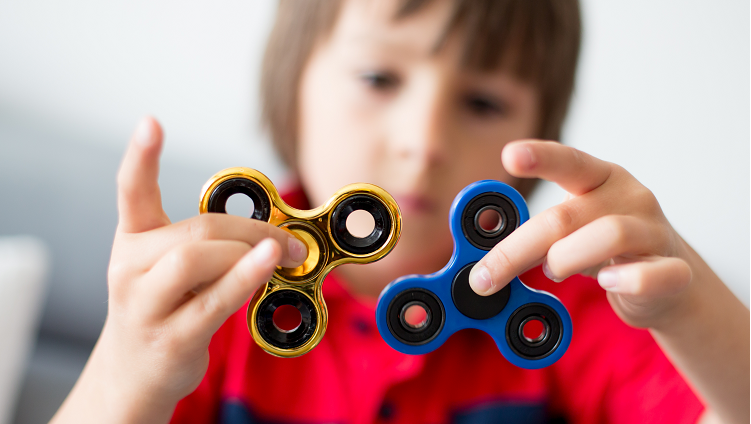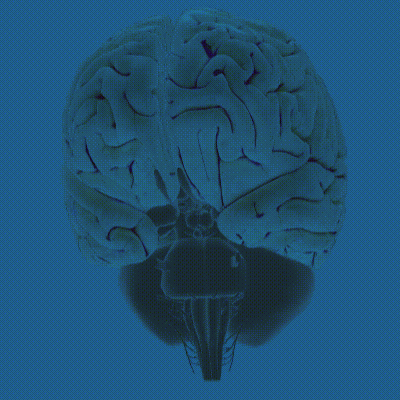Do Fidget Spinners Help Kids Focus?
- Published18 Jul 2018
- Reviewed18 Jul 2018
- Author Jennifer Michalowski
- Source BrainFacts/SfN

The small, spinning toys known as fidget spinners are popping up in playgrounds and classrooms everywhere. Not only are they fun, but many manufacturers also advertise them as useful tools for reducing anxiety and improving attention.
Paulo Graziano started paying attention to these advertisements when his own daughter became interested in the toy. Scientists had yet to test the claim that fidget spinners improve concentration in children with attention-deficit/hyperactivity disorder (ADHD), so Graziano, a child psychologist at the Center for Children and Families at Florida International University, set up a study with his colleagues to find out if it was true.
Do fidget spinners help kids focus?
No. If your kid wants a fidget spinner to have fun, they’re cheap and easy to buy. But don’t let anyone convince you that this will suddenly help your kid’s attention and they will do better in school because that is not the case. They will cause more problems than you need because they seem to distract kids more than help them.
How do we know that they don’t help?
Last year, my team and I did a systematic study to examine whether fidget spinners can really help kids with attention in a classroom environment. We worked with young kids with ADHD, between the ages of five and seven. We run a summer treatment program for ADHD, and we gave a couple of kids in each classroom a fidget spinner. We videotaped them during an English lesson, and then we saw how the fidget spinner affected their behavior and attention during the class. The fidget spinner distracted them significantly. It caused a lot more rule violations, in terms of not paying attention to the teacher, being off task, not knowing what’s going on, and not being able to answer questions the teacher asked.
Where does the idea that they might improve attention come from?
There are some theories in regards to ADHD that kids’ excessive movement can be very beneficial in increasing their prefrontal cortex arousal and alertness, and that might help them engage in some academic tasks. Nobody had studied this in a classroom setting, but there have been a couple studies showing that in a lab, kids that fidget—at least natural fidgeting, leg movements, restlessness, things like that—can do certain cognitive tasks better than kids with ADHD who don’t do that type of movement. So I think that’s where the theory came from. But the problem with the fidget spinner is the kids are not really moving. The fidget spinner moves. They’re swinging their hands to move it, but that’s different than your body fidgeting.
Is it possible that certain groups might benefit?
That was one of the limitations of our study: Our kids did have ADHD. For sure I would never recommend a fidget spinner to a child with ADHD. Nobody has done a classroom study for typically developed kids, but then, they don’t really need it in a classroom because they’re not having those attention problems.
What are better ways to help kids with ADHD focus?
In school, it’s very clear what we need to do with kids with ADHD. You have to sit them at the front of the class, in a distraction-free zone. You need to make sure that teachers receive adequate training in behavioral management strategies: lots of praise and attention for good behaviors. Teachers and parents both tend to harp on the negative aspects and annoying behaviors that kids with ADHD engage in, but they really respond much better to positive reinforcement. That should be paired with frequent feedback to parents about their kids’ performance in school in the form of a daily report card. Aside from medication, that is the evidence-based strategy for helping kids with ADHD in the classroom.
This Ask an Expert was answered by Paulo Graziano as told to Jennifer Michalowski for BrainFacts.org.
BrainFacts.org welcomes all your brain-related questions.
Every month, we choose one reader question and get an answer from a top neuroscientist. Always been curious about something?
Please submit your question by filling out this form.








